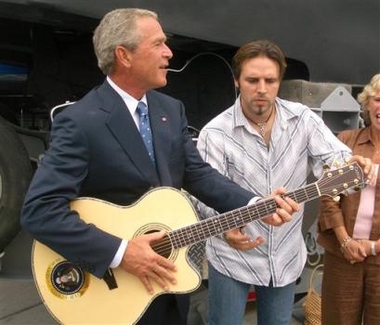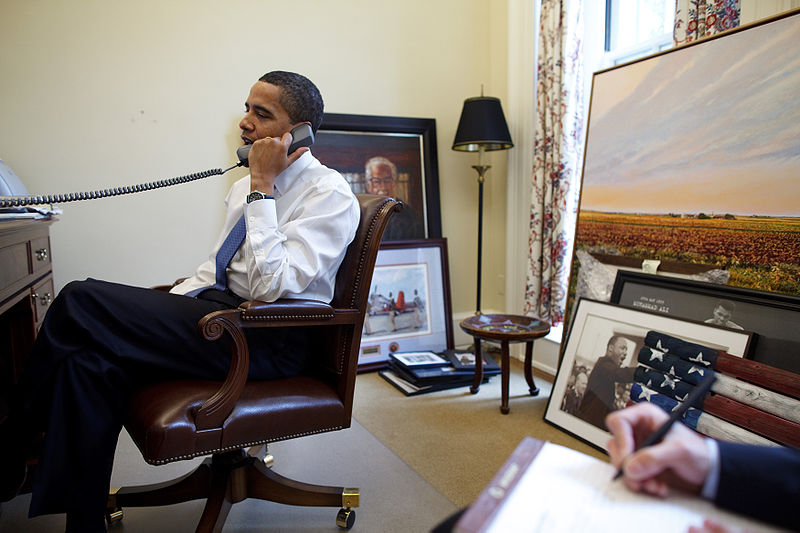“Mission Accomplished,” the words that hung like nooses behind our most unwitting President, George W. Bush, in 2003, as he prematurely announced “victory” in Iraq after invading the wrong country for no good reason, may be the phrase most associated with the gross incompetence of his Administration, but “Brownie, you’re doing a heckuva job” is just as damning and telling.
That’s what Dubya uttered in support of FEMA administrator Michael D. Brown as New Orleans sank not only in the waters of Hurricane Katrina but also in federal fecklessness and neglect. All while the President fiddled–or, more accurately, strummed.
Historian Douglas Brinkley believes it was the latter tragedy that was Bush’s greatest undoing. An excerpt from his writing in Vanity Fair:
What a weird moment in U.S. presidential history.
Hurricane Katrina, a Category 3 storm, had smashed into the Gulf South. People were drowning. And the president of the United States played guitar in San Diego, egged on by country singer Mark Wills.
Even George W. Bush’s most stalwart supporters cringed at his disconnect from reality. Bush, like Michael Jackson in his days at Neverland Ranch, was living in a bubble. By contrast, when Hurricane Betsy had struck the Louisiana coast in 1965, President Lyndon B. Johnson had immediately flown to New Orleans to see the flood zone firsthand. The difference was glaring. Bush was, quite simply—as Coast Guard first-responder Jimmy Duckworth phrased it—“out of the game.”
On the 10th anniversary of Katrina, with the advantage of hindsight, it’s clear that Bush’s lack of leadership in late summer of 2005 cost his presidency mightily. Unlike Ronald Reagan, after the Challenger explosion, or Bill Clinton, after the Oklahoma City bombing, Bush had failed to feel the profound implications of the moment as his predecessors had. He didn’t scramble into action. He didn’t touch the nation’s heartstrings by using epic oratory to inform the disaster. What we got, instead, were guitar chords and terse speeches void of human pathos. No matter how the Bush library in Dallas tries to spin Bush’s Katrina performance, we all know he deserved an F in crisis management.•


